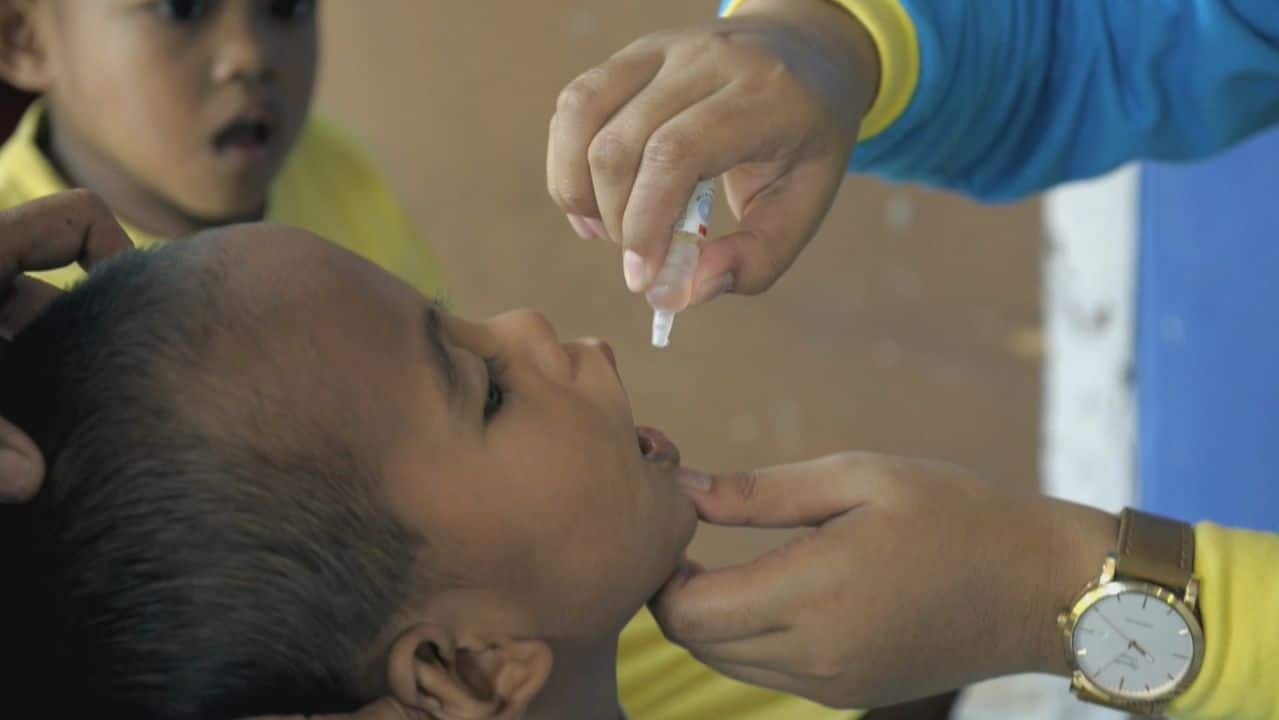[ad_1]
After new reports of polio cases abroad, and virus samples in the wastewater of several other developed countries, Canada intends to start testing wastewater from a number of cities “as soon as possible,” CBC News has learned.
The Public Health Agency of Canada (PHAC) already works to monitor polio activity around the world, a spokesperson said in an email response to CBC News questions.
Currently, PHAC’s National Microbiology Laboratory in Winnipeg does have the diagnostic tools available to test samples for poliovirus. Any suspected positive Canadian samples of poliovirus will be sent to that lab for further laboratory analysis and confirmation, with results shared with the respective local health authorities “so appropriate public health measures can be taken if necessary.”
According to the statement, PHAC has been communicating with national and international partners who are experts in this field to finalize a wastewater testing strategy. It will be testing wastewater samples that were collected earlier this year from “key high-risk municipalities” to determine if polio was present prior to the reported international cases.
The agency is not yet sharing which cities or municipalities are involved, a spokesperson said.
However, Eric Arts, a professor at Western University’s Schulich School of Medicine and Dentistry who is involved with Ontario’s wastewater surveillance initiative, said the province is among the areas engaged in discussions around wastewater testing for polio, as well as monkeypox, which has been spreading globally for months.
“We need to start surveying for a lot of these infectious diseases in our wastewater,” Arts said.
A health official in New York State says hundreds of people could be infected with the polio virus.
Samples will be sent to U.S. for additional confirmation
In terms of polio surveillance, PHAC will also be sending samples to the U.S. Centers for Disease Control and Prevention for additional confirmation.
“However, it is important to acknowledge that accurately testing wastewater for poliovirus is a developing science,” the agency’s statement continued. “For example, wastewater detections can be affected by extreme precipitation events, such as flooding in a community.”
Arts said identifying actual poliovirus in water can also be challenging due to a type of polio vaccine used in certain countries — a modified form of the virus which is delivered by mouth.
The vaccine can’t cause illness, but can be shed in human waste which winds up in sewer systems, and in some instances may evolve back into a form of the virus that could lead to disease. Typically, though, any samples would simply be catching vaccine-derived polio, not a harmful pathogen.
“It’s sometimes hard to determine what is actual poliovirus circulating versus the oral polio vaccine that’s circulating,” said Arts, who added it may show up in Canadian wastewater through individuals who’ve moved from countries where they were given the oral vaccine.
“It doesn’t mean there’s circulating polio in our population,” he said.
A look back 40 years later at the year 1953, when polio last stalked Canada. Aired on CBC’s Prime Time News on Dec. 7, 1993.
Reports of polio in U.S., U.K., Israel
But instances of polio infections have been reported this year in other countries where the virus isn’t typically found.
On Wednesday, British health authorities announced they will offer a polio booster dose to children aged one to nine in London, after finding evidence the virus has been spreading in multiple regions of the capital.
The agency said it was working closely with health authorities in the U.S. and Israel, as well as the World Health Organization, to investigate the links between polio viruses detected in those two countries.
In July, Israel announced a recent outbreak of polio infections appeared to be under control, after multiple people became infected, including a Jerusalem girl who was paralyzed and now requires rehabilitation, according to the Jerusalem Post.
More recently, in the state of New York, one unvaccinated young adult suffered paralysis after a polio infection in Rockland County — an area known for low vaccination rates — which marked the first case reported in the U.S. in nearly a decade.
Outbreaks also remain common in Afghanistan, Pakistan, and parts of Africa — areas of the world where vaccination efforts have not yet eradicated the virus.
Polio can often be asymptomatic, but in some cases, the viral infection can lead to paralysis or death.
[ad_2]
Source link






